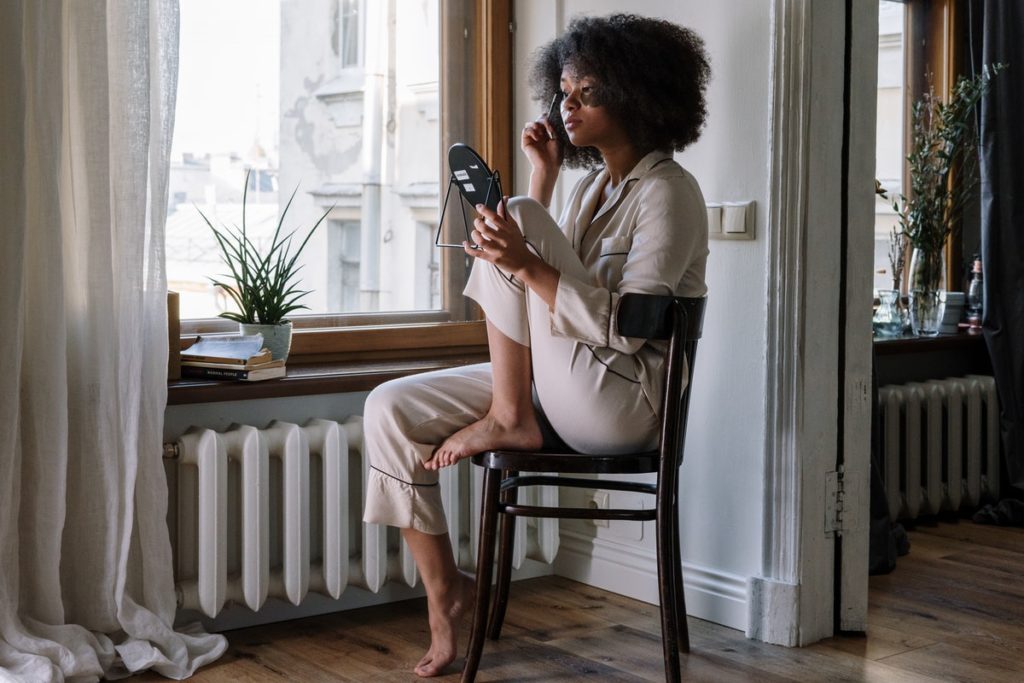Not many people are practicing mindfulness, nor are they making time for self-care. Mindfulness refers to one’s ability to maintain awareness of their thoughts, bodily sensations, emotions, and the surrounding environment. It helps us clear our minds, be more observant and concentrate on the present. Self-care, on the other hand, is the practice of preserving and improving your own happiness and protecting your own well-being. It encourages you to nurture yourself in terms of your physical, emotional, mental, and spiritual health.
During the pandemic, more people are anxious about the future. We fear for our lives, the health of our loved ones, and basically what the future holds. With all the thinking and worries, we get stressed out that manifests in different signs and symptoms.
According to the news, up to 55% of people are more stressed-out than they were before the pandemic. People getting sick and dying, unemployment rates climbing up, and the frustration that comes with the inability to enjoy usual activities are the main causes of stress during the crisis.
How Self-Care and Mindfulness Can Help
Numerous studies show that mindfulness offers numerous benefits. For one, it helps in improving our working memory, focus better, maintain greater cognitive flexibility, decrease emotional reactivity, and even improve relationship satisfaction. It can even help in reducing stress and anxiety.
Mindfulness also helps boost our empathy and compassion. Loneliness caused by isolation is common during the pandemic. When you practice mindfulness, you get to nurture feelings of interconnectedness and find ways to connect and be more kind to others.
It is also believed that mindfulness allows us to deepen our relationship with nature. This is why more people are into gardening, are trying to reduce consumerism, and are exercising sustainable practices mid-pandemic. We become more in-tuned with ourselves, others, and our environment
Self-care during the pandemic helps alleviate the psychological stress and anxiety we are experiencing during the Covid-19 crisis. We get to take better care of ourselves, which then helps us become more prepared to help our loved ones and others through the crisis. This is not only relevant to healthcare workers who are risking their lives taking care of the sick, but to everyone.
Other Ways to Practice Self-Care and Mindfulness Mid-pandemic
There are basic self-care strategies you already know, like eating healthy, sleeping well, and staying active. You may also be practicing meditation and deep breathing exercises. But there are other ways you can take better care of yourself and practice mindfulness during the Covid-19 crisis.
Avoid Putting Off Dental and Health Appointments
You may not be up for a dental checkup this year nor do you find it necessary to show up for your annual checkup. But know that choosing to skip such appointments does more harm than good to your health. Here’s how.
Are you clenching and grinding your teeth more during the pandemic? As it turns out, pandemic-related stress is to blame as one cause of bruxism is stress and anxiety. Teeth grinding can lead to facial pain and can cause your teeth to crack, which makes it a must that you visit your orthodontist asap.
Focus More on Your Meals

Many of us take eating for granted. We often multitask while eating by browsing the internet during mealtime. We eat too fast would even go for our comfort foods instead of healthy and decent meals each time.
But when take time to focus on what we are eating and pay attention to the experience, we begin to appreciate food more. Take time to appreciate your food by looking at it, smelling it, tasting your food, and chewing properly. Practicing mindful eating makes it easier to make wiser food choices and free yourself from unhealthy food habits.
Take Time to Check in on Yourself
We have become so busy and worried that we often forget to ask ourselves how we are feeling and what is happening to us each day. Do you know how you really feel, what makes you feel this way, and what you can do to address this? If not, it is never too late to start knowing yourself better.
You can start by identifying your stress triggers. This will make it easier for you to avoid them and better deal with those triggers in the future. Ask yourself a series of questions like how do you really feel and don’t forget to be honest to yourself.
You can also start writing in a journal. Pour your hearts out each day and you will learn how satisfying it is. Make checking in on yourself a ritual and it will be easier for you to be more honest, in-tune, kinder, and connected with yourself.
These stressful times have an impact on everyone, even the most emotionally resilient people. There is no shame in admitting that you are more stressed-out nowadays. What is important is that you try your best to deal with stress. You can do this by practicing self-care and mindfulness, among many other strategies.

